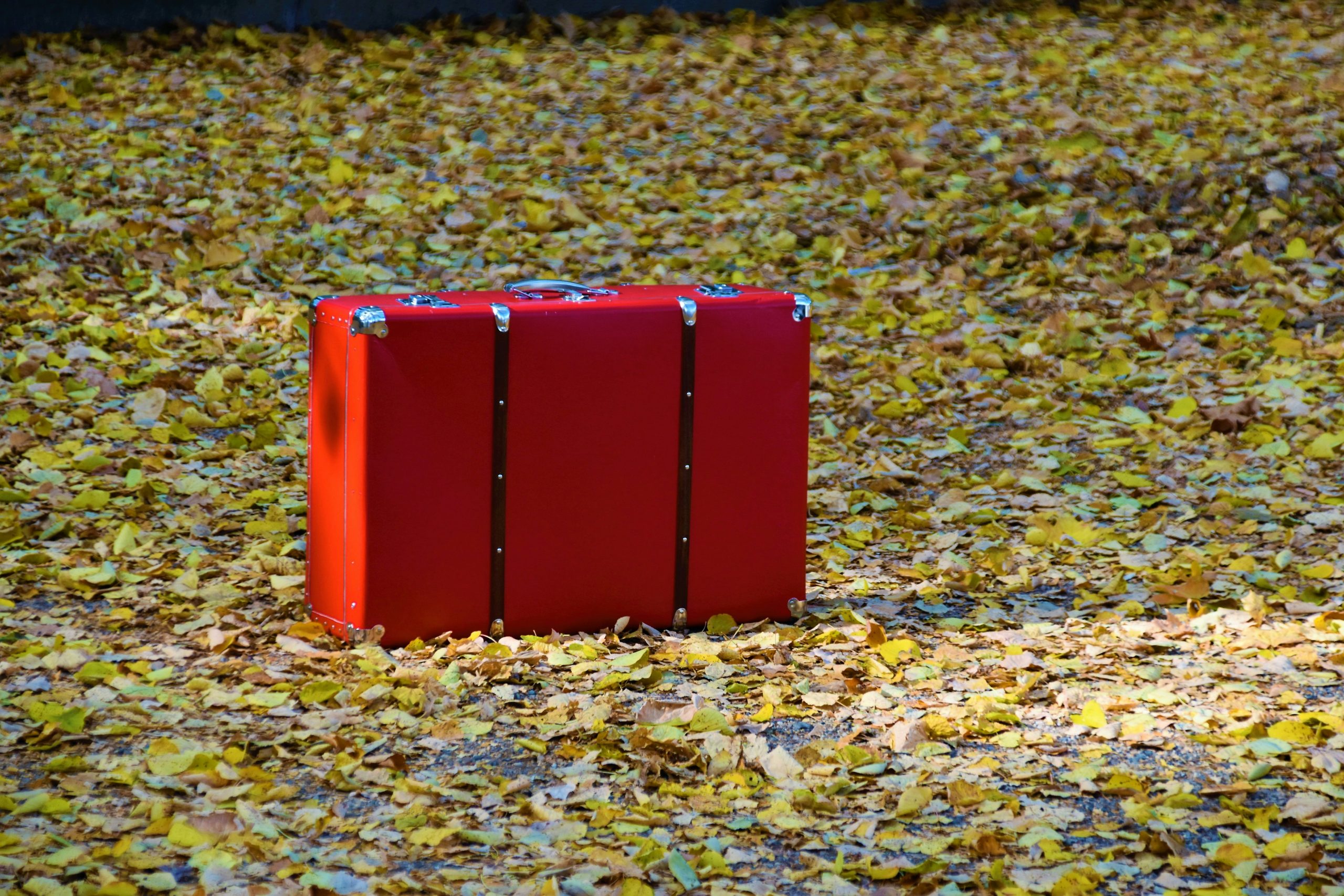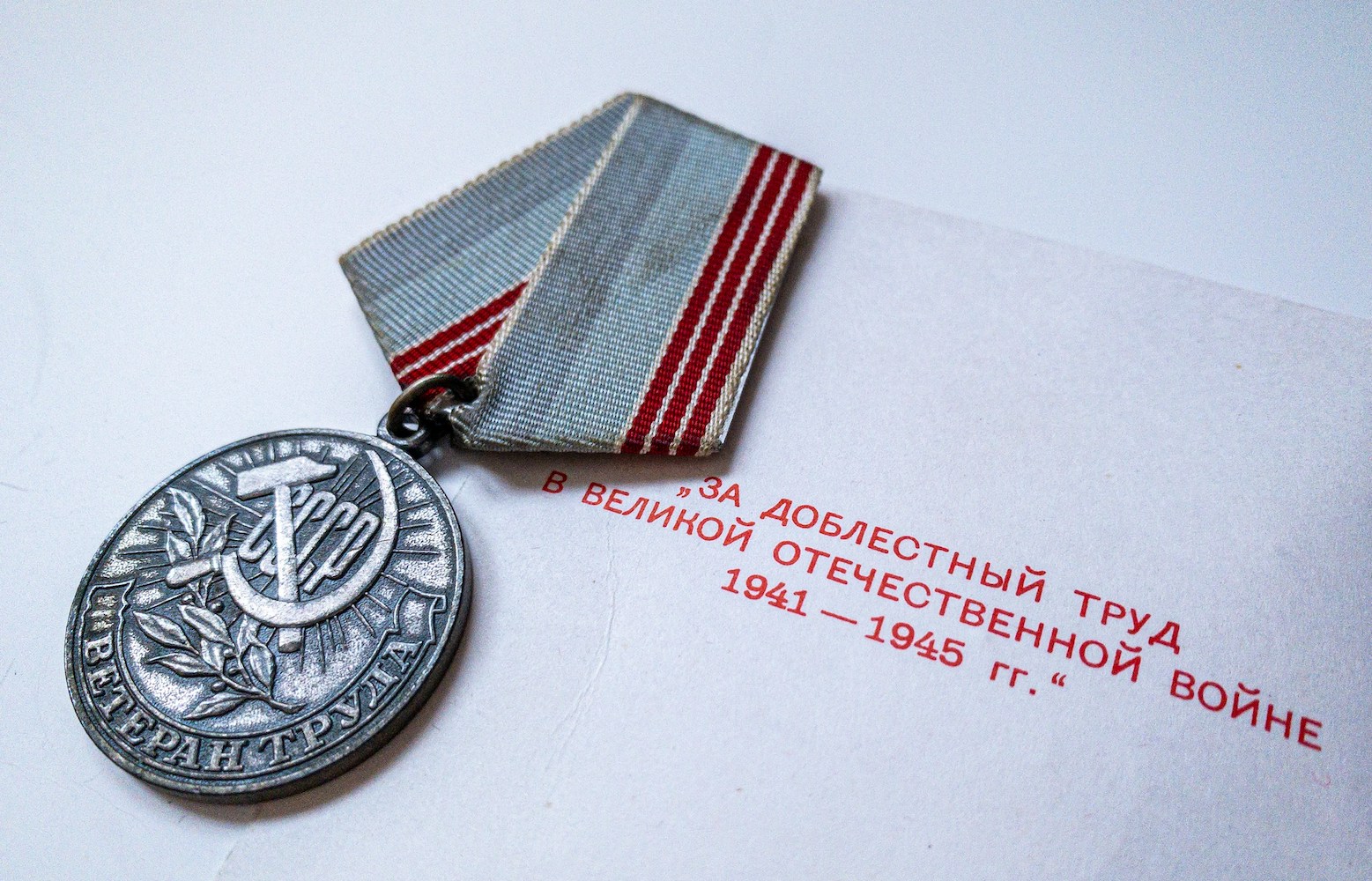Craft
The Towering Influence of Leonard Cohen
Almost three years after his death, the singer-songwriter can still teach us something about what writing is for

This article was adapted from a talk presented at Every Now and Then I Fall Apart: A Karaoke Reading Series.
When you first walk into Candice Breitz’s video installation “I’m Your Man (A Portrait of Leonard Cohen),” you’re faced with a life-sized video projection of a men’s choir. The choir is singing beautifully, but intermittently, in expertly-arranged harmonies, a bunch of white men in black suits and black yarmulkes holding black folders.
This is the choir from the Shaar Hashomayim Synagogue, Cohen’s own congregation, located in the Westmount neighborhood of Montreal. I was also staying in Westmount, with my aunt and uncle, when I first saw Breitz’s piece at the contemporary art museum, MAC Montreal. It was part of the exhibition “Leonard Cohen: A Crack in Everything,” 20 commissioned artworks inspired by his oeuvre. I saw it again in Manhattan, at the Jewish Museum, where “A Crack in Everything” is in residence until the fall before traveling (somewhat stochastically) to Copenhagen and San Francisco—but there’s something very special about seeing it in Montreal, a city that loves Leonard Cohen the way I do. If I’d gotten off the bus a few stops earlier, I would have found his likeness painted on the side of a skyscraper, 20 stories tall. That’s the way I like to see him: a towering figure, one you can live inside.
My first memory of Cohen’s music is my parents listening to his then-new album “I’m Your Man” in the kitchen, which I recall as happening when I was about 14—but only because I think all music happened when I was 14. That age exerts such a strong gravitational pull on music that it collapses into a singularity where everything happens at once. In fact, when “I’m Your Man” came out, I was eight. This means Leonard Cohen was part of my life before The Simpsons, or REM, or Tamora Pierce novels, or the internet, or any number of pop cultural influences I barely remember the beginning of. He was there before I knew what MTV was, or how to use the radio, and fully half a decade before I had a CD player of my own.
The music gestures towards the poetry, which is too big to be held in a single song.
I did not particularly like Leonard Cohen’s music at that age, and not just because eight-year-olds aren’t known for their sophisticated opinions. His gravel-and-oil voice, which is now one of the most beautiful sounds I can think of, is very much an acquired taste. The melodies are repetitive, the backup singing is dated and cheesy, the instrumental parts often sound like a Casio preset. But the imperfect music makes you feel like the song itself is something larger than the singing or the instruments or even the melody, something vast and important, and we’re just seeing the cross-section that intersects with our fallen dimension. “Hallelujah,” his most-covered song, is the best example: one site that collects Cohen covers lists over 150 recordings of the song, including a version from the Shrek soundtrack and a cover of the version from the Shrek soundtrack. Some of them are translated; some use different subsets of the 80 verses Cohen originally wrote (Cohen’s first recording, on Various Positions, shares only half its lyrics with Jeff Buckley’s cover, probably the best-known). All of them feel like being exquisitely murdered with completely different weapons. But they are in effect all facets of the Platonic ideal of “Hallelujah,” the shadows on the cave wall as it turns. The music gestures towards the poetry, which is too big to be held in a single song.
I guess another way of saying this is that while I didn’t always like Leonard Cohen, I did (and do) love him, the way you love your family or anything else that’s inescapable from an early age. Loving him felt as optional as Judaism, which is to say not at all—not a choice you make, but something as deep as bone. But what I really loved, even more than Leonard Cohen the musician, was Leonard Cohen the writer. When I left home I took with me a 1968 copy of his collected poems, on whose cover my college-age dad had drawn glasses onto Cohen’s face in ballpoint pen. Every few years one of my parents contacts me to ask me to send them the poem that references a building whose windows look like they’re aflame from the setting sun. There’s no such poem—there’s only a line about “a fire in every window on the street,” a reference, in the context of the poem, to people burning documents. But that image inspired something just a bit grander and less grim in them, something that they’ve carried through 50 years.
The poems, too, are imperfect, full of self-indulgent language and microscopic obsessions. Like the songs, there is a giant overwhelming beauty lurking behind each one, like a bubble pushing through the poem’s skin—and even though it’s too big to translate onto the page, the fact that he had tried made me feel bolder. I didn’t want to write like Leonard Cohen, but reading Leonard Cohen made me think that if he could write so very much like Leonard Cohen, maybe I could write like me. In that vulnerable period between when Cohen showed up in my life and when I swiped that crumbling book to take to college, this was the best thing poems could be: not perfect, but possible.
Leonard Cohen died on November 7, 2016, the day before Trump was elected. It was the last day of the old world—a very bad world, but one that felt a little less doomed.
One of the small obsessions in his poetry, which was actually a very large obsession, one of the largest, was the Shoah—both the historical Holocaust, and the broader nuances of catastrophe. His concerns are both monumentally sad and indelibly caustic. One of his poetry collections is archly titled Flowers for Hitler. In the poem “All There Is to Know About Adolph Eichmann,” he lists off the monster’s qualities: height medium, weight medium, intelligence medium. “What did you expect? … Madness?”
I have never felt more in need of Leonard Cohen than now, when everything is spiraling towards oblivion.
My friend Brad recently said that every Leonard Cohen album exists on a spectrum of horniness to apocalypse, or maybe more accurately they can be plotted on two axes: horniness the X, of course, and apocalypse the Y. The line from which the exhibition got its name, “a crack in everything,” comes from one of the most optimistic songs on his most apocalyptic album, The Future (which nevertheless is not without its horniness). “There is a crack in everything / That’s how the light gets in,” he sings on “Anthem,” but then a few songs later: “From the fires of the homeless / From the ashes of the gay / Democracy is coming to the U.S.A.” I think both of these things are true. How can you think both of these things are true, that this imperfect world is a source of grace and also that all of our great ideals march us towards inevitable doom? It helps to be Jewish: we are death-obsessed, but in a sort of resigned way that sometimes even borders on cheerfulness. It helps to be raised on Leonard Cohen, with his knack for conjuring both the sublime and the toxically cynical from the same flawed patch of earth.
In The Flame, the posthumously-published collection of Cohen’s later poems and lyrics and drawings and notes, a printed poem called “What Is Coming” appears opposite its original in his strangely self-conscious handwriting, which looks like a child practicing formal calligraphy. “Your anger against the war / your horror of death / your calm strategies,” he writes—strategies for everything from tidying up to establishing the Fourth Reich—“these are merely / your activities.” You can control no part of the future, he says. You can’t even understand the consequences of what you do.
oh and one more thing
you’re not going to like
what comes after America
I have never felt more in need of Leonard Cohen than now, when everything is spiraling towards oblivion. He wouldn’t be able to cheer me up, but at least he wouldn’t try. But the fact that in the face of futility, I still grasp for words, not to stave off or distract from despair but just to give shape to it: that might have something to do with him.
You may watch the Shaar Hashomayim Synagogue choir for a while, humming and then lifting their voices to intone “THEN WE TAKE BERLIN” and then humming again, before you notice the lighted arrow that beckons you behind the screen.
What’s back there is a circle of more life-size video projections: eighteen men, all over 65, most of them white, all of them singing. Just a convention of musical dads. Most are in T-shirts, a few of them are wearing suits—one has a suit and a fedora. One’s wearing religious-looking robes. One of them sits with his cane over his knees. One does a constant, nonstop arm-swinging bop, no matter the tempo of the music. One whistles all the instrumental parts. What they are singing are the eight tracks from Leonard Cohen’s 1988 album I’m Your Man. They are not good singers, but on the choruses you hear the men’s choir from the other room, harmonizing, elevating.
The work might be more effective (although maybe not, who knows) if they weren’t mostly old white men. Leonard Cohen was an old white man, of course, but that doesn’t mean that all his avatars will be. (According to the exhibit card these men had to prove they were Leonard Cohen superfans, but two of them pulled out lyric sheets during “Jazz Police.” I know the words to “Jazz Police.” Put me in the piece.) Breitz reportedly chose only men because she wanted to celebrate and interrogate masculinity, but this is where she and I differ: I think the best way you can interrogate masculinity is by discarding it. But that’s not the point.
That’s what writing is. Your words in someone else’s mouth, past death.
The point is that in every one of these old men’s faces you see your father singing these songs in the car, and your mother singing these songs in the kitchen doing the dishes, and yourself singing these songs right now, under your breath, because you will have started singing under your breath. And in every one of those faces you see Leonard Cohen, who was also in the kitchen and the car and is here right now, because that’s what poetry is. That’s what writing is. Your words in someone else’s mouth, your tune in someone else’s throat, your heartbreak in someone else’s chest, past death.
Here’s something Leonard Cohen said about the works of Federico Garcia Lorca, when accepting a literary prize in Spain. A video of him saying it is included in one of the works in the exhibit, and it also appears in The Flame:
When I was a young man, an adolescent, and I hungered for a voice, I studied the English poets and I knew their work well, and I copied their styles, but I could not find a voice. It was only when I read, even in translation, the works of Lorca that I understood that there was a voice. It is not that I copied his voice; I would not dare. But he gave me permission to find a voice, to locate a voice; that is, to locate a self, a self that is not fixed, a self that struggles for its own existence.
And as I grew older, I understood that instructions came with this voice. What were these instructions? The instructions were never to lament casually. And if one is to express the great inevitable defeat that awaits us all, it must be done within the strict confines of dignity and beauty.
It wasn’t only Leonard Cohen who taught me that it’s possible to have a voice, or anyway that it’s possible for me to have one. That’s the kind of lesson I don’t learn easily, and I’m sure it took an army—all the mysterious “teachers of the heart” that Cohen sings about. But I do think he taught me that it’s possible—not easy, but possible—to send that voice into others, to ride across the world and past death behind someone else’s eyes, in someone else’s mouth, with the power of your words. That the ultimate goal of writing is something like an army of dads, all singing your song.








